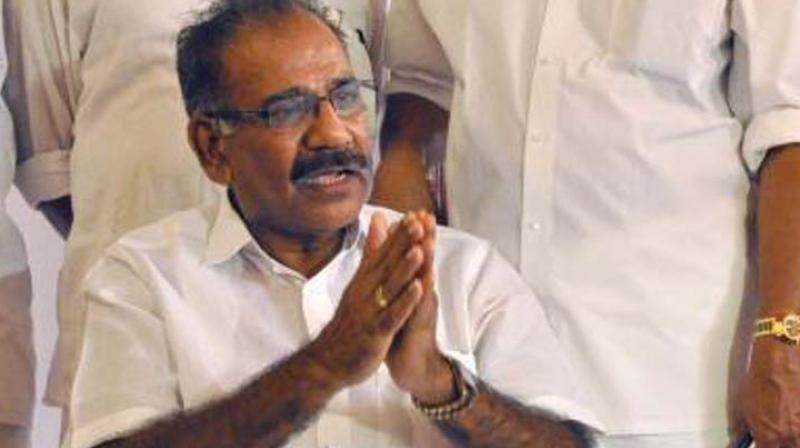Channel's sting operation was solely to increase TRP
There was no case of public interest and the sting operator had no stake in the matter.

The sleazy fireball that engulfed the launch of a TV channel first claimed the scalp of Transport Minister A.K.Saseendran and now the channel CEO is in remand, along with senior colleagues. Different opinions have come up from several journalists questioning the very basis of the supposed news blitz. Some say it is illegal and some say it is immoral. What are legal issues involved? Live India had carried a news clip showing a teacher, Uma Khurana of a Delhi school run by the government, forcing a girl student into prostitution. Crowds bayed for the teacher’s blood. Later a police enquiry revealed that the girl was not a student but a budding journalist, seeking quick fame. The teacher was found to be innocent. Chief Justice Sanjiv Sharma of Delhi High Court decided that the entrapment of a person, even if for public interest, had no legal sanction.
The court directed the Ministry of Information and Broadcasting to pass guidelines and constitute a committee to oversee sting operations. The court stated that a certificate has to be obtained before embarking on a sting operation. Delhi HC again in Aniruddh Bahal v State by a judgment on September 24, 2010 ruled that sting operations are legal. Anirudh Bajhal and a female journalist conducted a sting on some MPs, offering money for asking questions in Parliament, and the act was caught on camera and aired on TV. No FIR was filed against the corrupt politicians but the first FIR was filed after one and half years against the journalists.
The court considered it a fundamental duty of every citizen to expose such corrupt activities under Articles 51A (b), 51A (h) & 51A (j) of the Constitution. Delhi high court quoted the apex court decision in R. Rajagopal v State of Tamil Nadu (1994) 6 SCC 632 where it was held that public officials do not have any right of privacy with respect to their performance of public duties and the protection is available only to functions that are not public. The latest judgment of the apex court in Rajat v CBI is worth mentioning. An FIR was registered against journalists, who published visuals showing Environment Minister Dalip Singh taking money. Delhi HC refused to quash the FIR and appeals were brought to the apex court.
In this case the court did not follow the judgment in R.K.Anands’ case where the sting operation was held legal and the evidence was accepted by the court. The court ruled in Rajat v CBI case that sting operations are not legal in India unlike the US and other countries where they are considered as a legal method of law enforcement. This was a judgment by a three-member bench, presided over by Chief Justice P.Sathasivam. “A journalist or any other citizen, who has no connection, even remotely, with the favour that is allegedly sought in exchange for the bribe offered, cannot be imputed with the necessary intent to commit the offence of abetment under sec. 107 or that of conspiracy under sec. 120B IPC…the cause of journalism and its role and responsibility in spreading information and awareness will stand sub-served.
It is only in cases where the question reasonably arises whether the sting operator had a stake on the favors that were allegedly sought in return for the bribe that the issue will require determination in the course of a full-fledged trial”, the bench ruled. On a total analysis of the Mangalam chapter, it is clear that the issue was totally mismanaged. There was no case of public interest and the sting operator had no stake in the matter. The matter did not deal directly or indirectly with public duties of the minister concerned. The channel did not initially own up the operation as a sting. There was no transparency in the act and therefore there is much room in the criticism that the channel did this to increase the TRP rating and not for the furtherance of public interest.
(The author is special public prosecutor for Customs and Central Excise)

